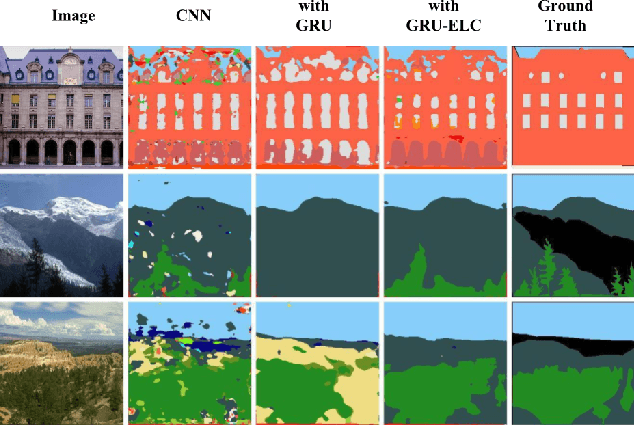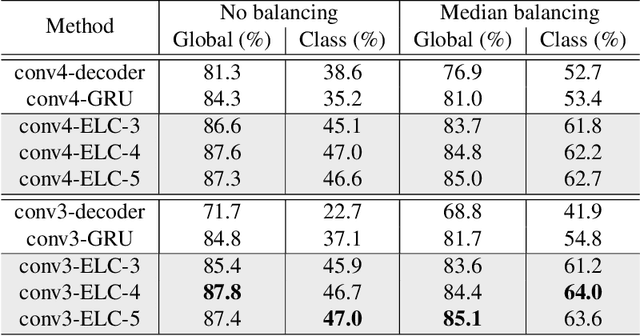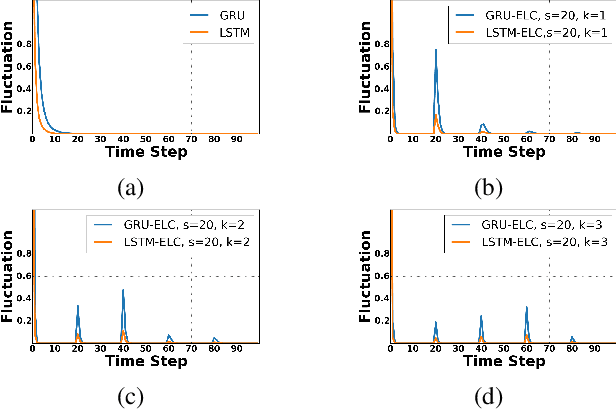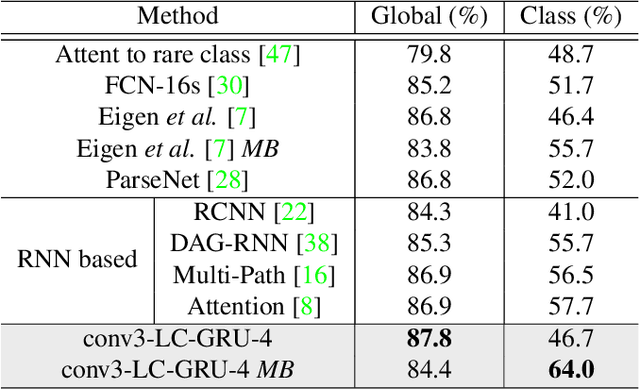Scene Labeling using Gated Recurrent Units with Explicit Long Range Conditioning
Paper and Code
Mar 28, 2017



Recurrent neural network (RNN), as a powerful contextual dependency modeling framework, has been widely applied to scene labeling problems. However, this work shows that directly applying traditional RNN architectures, which unfolds a 2D lattice grid into a sequence, is not sufficient to model structure dependencies in images due to the "impact vanishing" problem. First, we give an empirical analysis about the "impact vanishing" problem. Then, a new RNN unit named Recurrent Neural Network with explicit long range conditioning (RNN-ELC) is designed to alleviate this problem. A novel neural network architecture is built for scene labeling tasks where one of the variants of the new RNN unit, Gated Recurrent Unit with Explicit Long-range Conditioning (GRU-ELC), is used to model multi scale contextual dependencies in images. We validate the use of GRU-ELC units with state-of-the-art performance on three standard scene labeling datasets. Comprehensive experiments demonstrate that the new GRU-ELC unit benefits scene labeling problem a lot as it can encode longer contextual dependencies in images more effectively than traditional RNN units.
 Add to Chrome
Add to Chrome Add to Firefox
Add to Firefox Add to Edge
Add to Edge